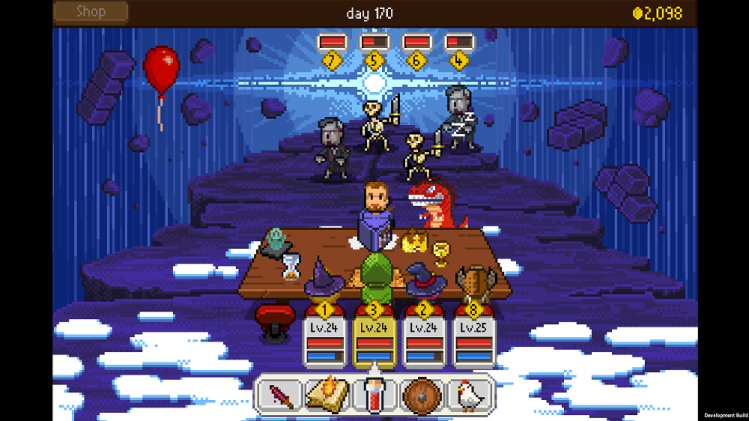When Paradox Interactive and developers Behold Studio set out to build a PC version of mobile hit Knights of Pen and Paper, we ran headfirst into the core dilemmas of mobile devs looking to expand their games to additional platforms: How do you evaluate whether your game is worth porting to PC, and how can you make that port a success? For developers to make the jump to PC a successful one, they need to maintain focus on the audience that supported them on mobile — casual gamers with an appreciation for hardcore games.
Doing mobile correctly is no easy thing, and many developers and publishers have tried to create that perfect, immersive, high-quality experience on a handheld device. The success of recent ports indicates that it’s not a question of “mobile gamers play casual games”: The recent “breakthrough” games — XCOM: Enemy Within and FTL — are proof that the dream is achievable. Many past failures have attempted to fully re-create the hardcore gaming experience on phones to reach those fans, without keeping the advantages and limitations of mobile in mind. In reality, a lot of the people we think of as casual players have a considerable background in hardcore games. These players appreciate the shorter session times of mobile games that fit well within busy schedules, but they’re still looking for the immersive gameplay and setting of hardcore games wherever and whenever they want.
This is a significant distinction to make, because it explains why hardcore mobile games aimed at re-creating the triple-A experience on mobile devices have struggled in the past — hardcore gamers aren’t playing games the same way on their phones that they are at home. For a game to be viable on both mobile and PC, it needs to hit the sweet spot between pick up-and-play game mechanics and immersive setting that can be comfortably played for 5 minutes on a phone or 50 minutes at a computer.
Knights of Pen and Paper hit that sweet spot. In this game, players go through individual encounters that last only a few minutes, or they string those encounters together into longer quests suitable for a sitdown session. The subject matter (tabletop gaming) appealed to a more hardcore audience, but the gameplay was accessible enough to appeal to players outside of Dungeons & Dragons fans. Furthermore, the PC launch also gave us the opportunity to expand the game’s content, including more characters, monsters, and quests that complemented the experience players had enjoyed on mobile and gave our fans more reason to buy back in.
Ultimately, the success that we’ve seen with Knights of Pen and Paper +1 (as well as the well-received Kingdom Rush and Plauge Inc: Evolved) proves that a healthy audience of players are willing to play quality ports of the right games. Pushing your game to PC and making that game a success, however, are two different things. By striking the balance between mobile and hardcore game design, developers can continue to reach the “experienced casuals” that made their game a success on mobile while expanding their reach to an eager PC market.
Florian Schwarzer is a senior mobile producer at Paradox Interactive, the Swedish games company best known for its historically accurate PC strategy games, and a bunch of titles featuring suicidally inept mages. Previous life stations include free-to-play game companies in Germany and England, the Fraunhofer Institute, and the video game modding scene.
VentureBeat's mission is to be a digital town square for technical decision-makers to gain knowledge about transformative enterprise technology and transact. Learn More

